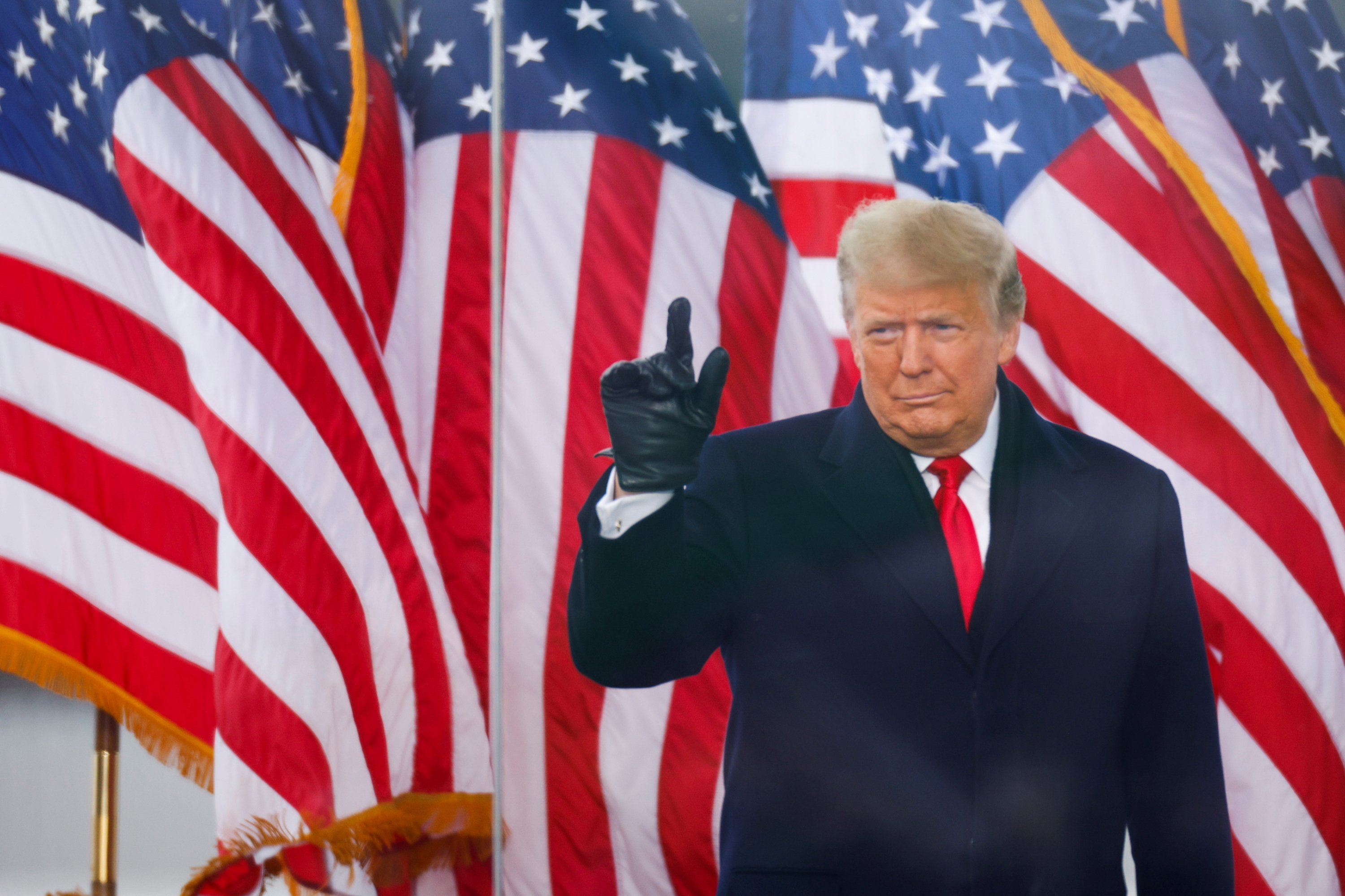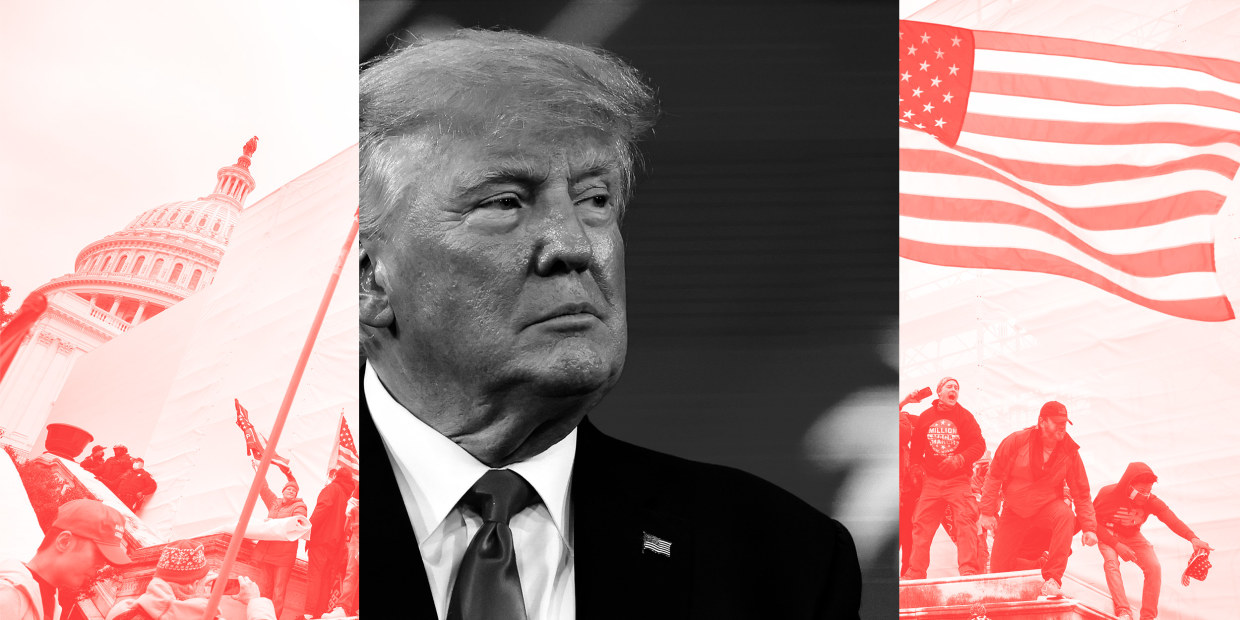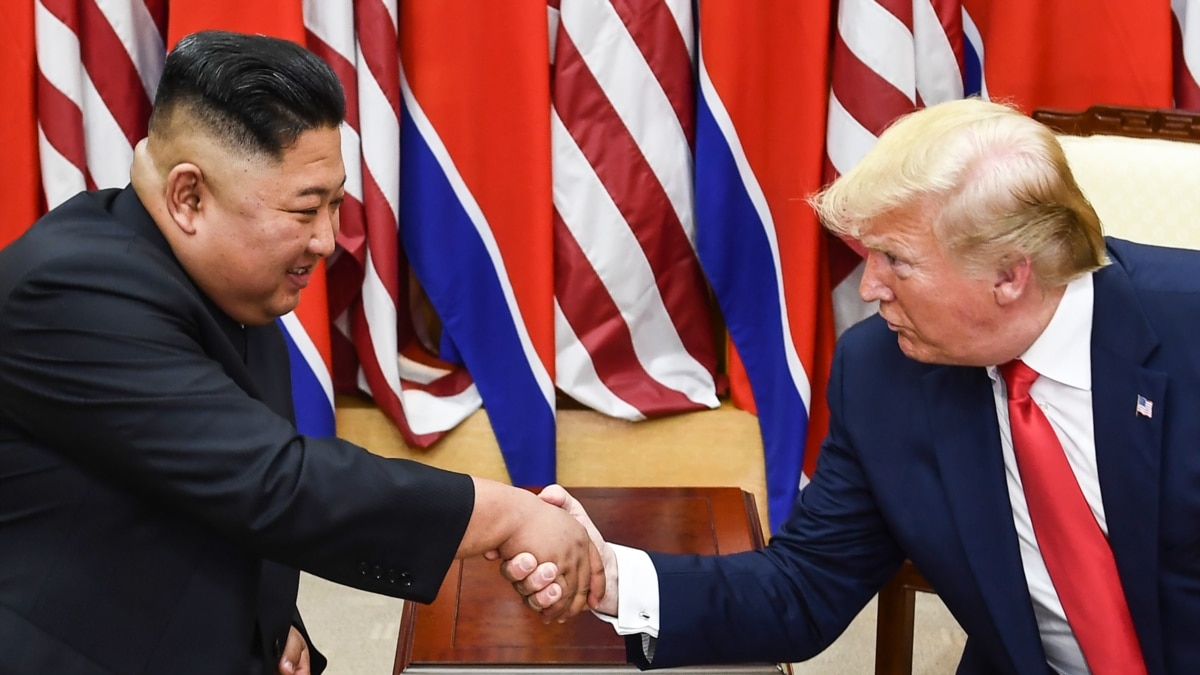Donald Trump’s Big Declaration On India ‘Very Big Abuser’ Of Trade Ties; Will A Second Trump Run Change The Dynamics For India Even As North Korea And Russia Keen To See Him Return?
Donald Trump remains a significant force in the 2024 U.S. presidential race. However, with his potential return to the White House, the global political dynamics could face considerable shifts, particularly trade policies. Notably, Trump's complicated relationship with India, and particularly Prime Minister, Narendra Modi, was characterized by public criticism and personal camaraderie; this mix has framed the U.S.-India relations. Simultaneously, North Korea's military relationships with Russia and China are coupled with its increasingly aggressive nuclear development, once again framed as a critical foreign policy issue. Meanwhile, Russia also wants to see Trump back in the White House for a second term; to policymakers worldwide, the message is unequivocal: Trump's return will bring unpredictability to the international order.

Far from cooling off because of Donald Trump’s recent felony conviction in a New York court, polling indicates that he remains a strong contender for this fall’s presidential elections in November.
While the situation may shift in the coming months, it would be prudent for global policymakers to prepare for the possibility of a second Trump administration.
However, nothing can be precisely determined in terms of policies that Donald Trump will enforce, given the several uncertainties and inevitable turbulence that may accompany his probable victory.
The future of U.S.-world relations under Trump, and the known factors that will define his domestic and foreign policies are yet to be outlined for the new presidency.

Trump Calls Out India
About India, Trump recently criticized the U.S.-India trade relationship, calling India a “very big abuser” in the same breath while stating he would meet Prime Minister Narendra Modi soon though exact details are still to be determined.
What is interesting is that this rhetoric compares with his previous statements, wherein he had claimed Modi was “fantastic” and shared cordial ties with him during his time in power.
Trump and Modi have a past public friendliness; Modi had hosted Trump in India with a massive rally at the world’s biggest cricket stadium in 2020. Similarly, the “Howdy, Modi!” rally in Texas in 2019 featured Trump who had lavished praises on Modi before a crowd exceeding 50,000 attendees.
While Trump has been vocal in his criticism of India on trade matters, his relationship with Modi has been positive; simultaneously, Modi also has maintained close relations with Democratic presidents like Barack Obama and Joe Biden.
Last year, the Biden administration welcomed Modi with high-level engagements focused on defence and commerce, emphasising the significance of U.S.-India relations in a changing global context.
Donald Trump’s Second Term, The Big Question
Domestically, many believe that America will be split very sharply between the Democrats and the Republicans. Trump and his sympathizers will likely react by dismantling the so-called “deep state,” attempting to liquidate Democratic opponents, and, possibly, against the press.
In the presence of these two factors, civil conflict cannot be ruled out, consensual policymaking will be the exception, not the rule, and parts of the United States—including Washington DC—could become ungovernable.
Internationally, Trump will likely take a hard stance on NATO, pushing allies to shoulder more of the defense burden, while frustrating European nations by limiting their policy autonomy.
His approach toward China is expected to remain tough, while his alignment with Israeli Prime Minister Benjamin Netanyahu could lead to further conflict with Iran and Russia.
Trump’s mercurial nature will be a big part of how he moves forward through foreign policy.
His first term saw unexpected moves such as outreach to North Korea, the Abraham Accords, and arms support for Ukraine, all while maintaining admiration for Vladimir Putin and relocating the U.S. Embassy to Jerusalem. His second term could bring even more surprises, driven by his desire to solidify his legacy.

Why North Korea Matters in the 2024 U.S. Election
While U.S.-China competition, the Ukraine war, and Middle East conflicts dominate foreign policy discussions, tensions on the Korean Peninsula remain a critical issue in the 2024 election.
Since the collapse of the 2019 Hanoi Summit, North Korea has advanced its missile technology, strengthened ties with Russia and China, and adopted a more aggressive nuclear stance.
Both Joe Biden and Donald Trump face the challenge of addressing North Korea’s nuclear ambitions. Trump prefers high-level, direct diplomacy, while Biden emphasizes working with allies and partners.
Pyongyang’s refusal to denuclearize limits U.S. policy options, but future strategies will likely involve building a coalition to monitor North Korea’s activities, coordinating with China to engage North Korea diplomatically, and advocating for North Korean human rights.
North Korea And The 2024 U.S. Election
Three decades of nuclear diplomacy with North Korea have left U.S. officials sceptical about any future deals.
It has gotten worse since the talks broke down last year, since the start of 2022, Pyongyang launched 106 missiles and relations between Pyongyang Beijing and Moscow have deepened in ways that give Kim Jong Un’s regime good leeway to dodge the United Nations sanctions.
These alliances have helped Kim Jong Un’s regime bypass U.N. sanctions, exchange critical technologies, and even test weapons on the Ukrainian battlefield.
The June 2024 Kim-Putin summit solidified these ties with a Treaty on Comprehensive Strategic Partnership, signaling North Korea’s intent to deepen military cooperation and challenge U.S. influence.
North Korea is not currently at the center of America’s foreign policy, given the continuing wars and competition from China, but its alliance with Russia demonstrates how tensions on the Korean Peninsula are symptomatic of broader fights over geopolitics.

Given Trump’s previous bond with Kim, he may be tempted to revisit engagement with North Korea. However, pursuing high-stakes diplomacy could risk undermining regional alliances.
The biggest test for the new US administration is to check or roll back Pyongyang’s nuclear and weapons development.
This would require rebuilding a coalition to monitor North Korea’s illicit activities and enforcing weakened sanctions and opposing its cyber operations.
Cooperation with China, despite mutual distrust, will be crucial to maintaining stability on the Korean Peninsula, especially in light of North Korea’s closer ties with Russia.
Additionally, the U.S. must continue advocating for human rights in North Korea, as internal pressures, including potential elite dissatisfaction or a succession crisis, could eventually challenge Kim’s regime.
As voters weigh the chances of how Trump will approach this crumbling security scenario in the region, several issues come to the forefront.
Trump might, for example, cite summits he had with Kim in 2018 and 2019 to argue that he was able to bring North Korea back into talks; he can also criticize Biden front for having a lull in his talks with the country.
Meanwhile, Biden can accentuate the efforts of his administration with allies in sustaining deterrence and cite risks under Trump diplomacy as deterring military readiness on the Peninsula.
Finally, it’s possible that Kim Jong Un himself could escalate tensions before the election, potentially to aid Trump, whom he may view as more favorable to North Korean interests.
By provoking instability, Pyongyang could set the stage for negotiations with a future Trump administration, seeking concessions like reducing U.S. troop presence in South Korea or halting joint military exercises—moves that could strain the U.S.-South Korea alliance.

If Donald Trump is Elected, What’s Next for U.S.-Russia Relations?
What if Donald Trump makes his way to the White House again; what kind of policy might he make regarding Russia and the ongoing war in Ukraine?
Well, opinion in this regard ranges from a call for the United States to end its support for Ukraine, as Hungarian Prime Minister Viktor Orbán suggested, to a more aggressive stance, such as Trump’s claim that he might have bombed Moscow when Russia invaded Ukraine in 2022.
Alternatively, Trump has repeatedly said he could end the war within 24 hours, implying that a marathon negotiation session with Putin and Zelensky would bring a swift resolution.
With Trump’s mercurial nature and lack of consistent strategy, any of the above seems plausible. But none would likely do either the U.S. or the world much good: ending the support for Ukraine would destabilize Europe, a bombing raid on Moscow risks provoking a world war, and resolving such an enormously complex conflict in 24 hours is sheer fantasy at best.
So what might Trump actually do?
Most likely he will make a decision that suits his interest. Abandoning Ukraine will humiliate his image of a tough guy, but increasing the stakes of a conflict can make him take on the role of a strongman.
Negotiating peace, on the other hand, comes with a high risk of failure. In this light, standing up to Putin would align best with Trump’s self-image while also serving the West’s interests in ending the war on favorable terms.
Of course, it is impossible not to take into account Putin’s preferences. The Russian leader would like to see the United States leave Ukraine, but that is likely out of the question.
A quick, 24-hour agreement would be appealing to Putin, but his inflexibility would make such a negotiation nearly impossible. Putin’s worst nightmare would be U.S. escalation, which would drain further resources from Russia and weaken his regime.
The Last Bit, Most analysis suggests that U.S.-Russia relations would likely deteriorate under a second Trump term. However, that prediction assumes other domestic factors don’t come into play.
Trump’s foreign policy could easily be influenced by internal political priorities. If his focus shifts to prosecuting Joe Biden or fighting political battles at home, decisions on Ukraine could fall by the wayside, either continuing or cutting off U.S. support depending on the moment.
A potential civil conflict in the U.S. could make Russia a secondary concern. Lastly, Trump’s advancing age and unpredictable health might introduce yet more uncertainty, making any prediction about U.S.-Russia relations difficult to pin down.
For policymakers worldwide, the takeaway is clear: Trump’s potential return would inject volatility into international relations. They must prepare for a wide range of scenarios, expect the unexpected, and never assume that today’s stability will hold in a world shaped by Trump’s unpredictable leadership.
As for Trump’s approach to other countries, aside from Russia and North Korea, his strategy often revolves around transactional diplomacy and assertive deal-making.
However, his tendency to “bully” his way into agreements hasn’t always worked out, with multiple bankruptcies and failed ventures in his business career casting doubt on the long-term success of such tactics.




